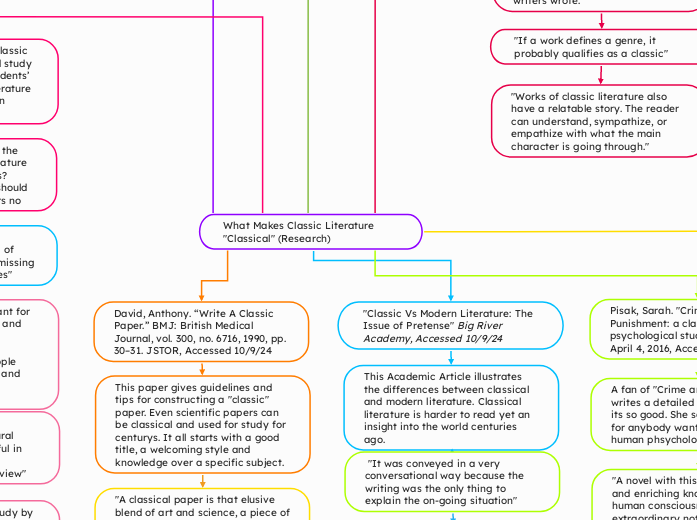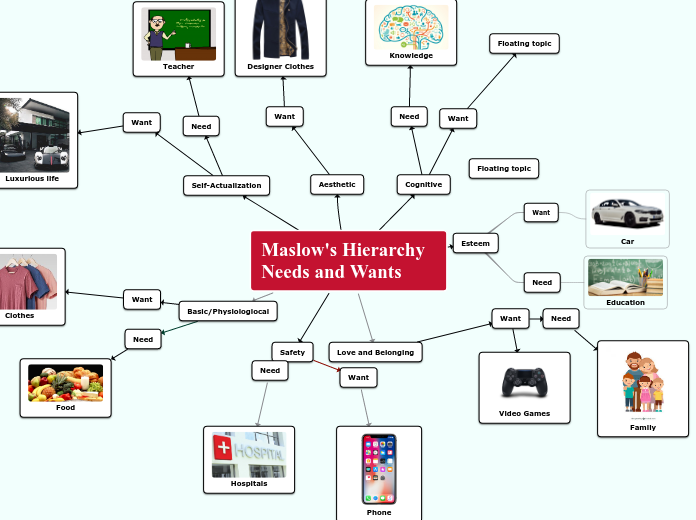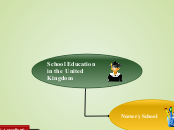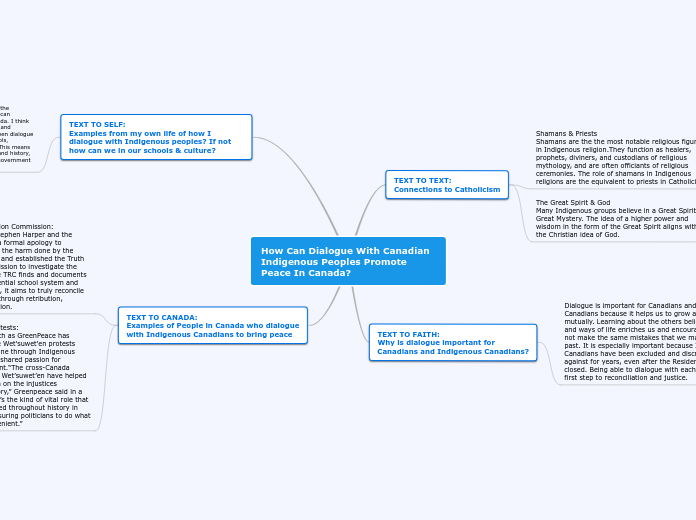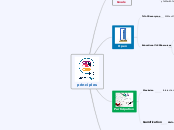"It was conveyed in a very conversational way because the writing was the only thing to explain the on-going situation"
"classic literature is more influential which requires deep research and understanding to know what’s happening. According to most of the writers, the only difference between these two is the gap of centuries"
"When you say that modern literature is based on classics then it means that it holds a pivotal role in shaping the way we read books"
This relates to my topic because it gives the reader an idea of the differences between classical literature and modern literature. In order for something to become classical you must be patience because it takes time
These two reading are related because they both emphasize how classical literature is cross-generational and timeless. Both examples are contemporary readings even today.
"A classical paper is that elusive blend of art and science, a piece of
scholarship that changes the way people think."
"Classic papers are different. For one thing they tend to happen by accident."
"First of all you have to make a major finding or conduct a substantial study."
This relates to my topic by giving instructions to writing a piece of classical literature. With these instructions, scientific papers can be dissected to learn what makes them classical.
“students without at least a surface-level understanding of classic texts run the risk of missing social and cultural references"
"classic literature is important for providing historical context and cultural insight,
offering a window into the attitudes and beliefs of people from different time periods and
cultures, according to the teachers."
"Classic literature is also
valuable for providing cultural references that can be useful in everyday life and from a
general education point of view"
This article relates to my study by giving evidence to how culturally relevant classic literature actually is. Teachers argue that classic literature holds universal values for students to learn.
These two articles relate to each other because they question the use and potential benefits of classic literature in education. By learning the benefits of classic literature, we can piece together the inner workings of a piece of classical literature. For example, a literacy work being used as a tool for study can be classified as having classical properties.
"She experienced herself how the DLG breaks with the stereotype that universal classic works belong to the cultural elite. The researcher narrates how she learnt to enjoy reading this literature, which reinforced her commitment to overcome social, educational, and cultural inequalities."
"Classic literature is not synonymous with hard or boring; it is synonymous with social transformation and cultural creation"
"the DLG revealed memories of childhood, erased until then, as my classroom converted into Ulysses’ ship."
This Article relates to my topic because it explains how classical literature exhibits transformative properties
This personal narrative goes over Laura Ruiz's life as she encounters classical literature for the first time. In her childhood, books of little importance or interest were the focus of her education during school. She had no experience with classical readings which led her to believe classics were for the culturally elite. After joining the DLG she looked back upon the classics and transformed her view of reading.
What Makes Classic Literature "Classical" (Research)
Mcnulty, Bridget. "How to write a classic: 7 key elements" Now Novel, Accessed 10/9/24
This Article fully encompasses my topic because it defines classic literature and how they become classic. The article then describes the steps to creating a classic while giving multiple examples of readings for each.
"Classic novels give us insights into the lives and experiences of characters who have interesting backgrounds, temperaments, motivations, loves and hates."
"Good style typically features:
Fitting, effective word choice
The tone of the writing suits the subject
Good sentence structure"
"One of the core features of classic novels is that they leave blank spaces and ambiguities."
"What Is Classic Literature? Top 5 Examples" Become a Writer Today, January 18, 2024, Accessed 10/9/24
This article gives a synopsis of the differences between classic and classical literature. The article also gives 5 examples of criteria classic works exhibit.
"William Wordsworth, T.S. Eliot, and Percy Bysshe Shelly, produced novels, poems, and short stories, that led to a paradigm, completely changing the way most future writers wrote."
"If a work defines a genre, it probably qualifies as a classic"
"Works of classic literature also have a relatable story. The reader can understand, sympathize, or empathize with what the main character is going through."
This relates to my topic because it gives examples of criteria known in classic literature. Also brings light to the differences between classic and classical literature
These two articles are almost the same and give meaningful examples giving the reader multiple explanations of classical literature. Each example can be expanded on and theorised in my major project for this class.
Pisak, Sarah. "Crime and Punishment: a classic, psychological study" The Beacon, April 4, 2016, Accessed 10/9/24
A fan of "Crime and Punishment" writes a detailed synopsis of why its so good. She says its a classic for anybody wanting to read about human phsychology.
"A novel with this much intensity and enriching knowledge into the human consciousness is too extraordinary not be read and reread."
"Crime and Punishment tackles subjects such as alienation, poverty and nihilism. However, the theme I hear discussed most often and the theme I view as most prolific in the text is the psychological study of crime and punishment."
"Although published in 1866, Crime and Punishment’s themes are as contemporary today as they were at the time of the book’s first publishing."
This Article relates to my topic because it gives a detailed synopsis over why and how this book is a classic. It states even for its time it is still a contemporary work today.
Popova, Maria. "Italo Calvino’s 14 Criteria for What Makes a Classic" Why Read the Classics, the marginalian,
This Website Article details 14 elements of what makes a classic. This article is more like a synopsis of Italo Calvino's book "Why Read the Classics"
"A classic is a book which with each rereading offers as much of a sense of discovery as the first reading."
"The classics are those books which come to us bearing the aura of previous interpretations, and trailing behind them the traces they have left in the culture or cultures (or just in the languages and customs) through which they have passed."
"A classic is a work which persists as a background noise even when a present that is totally incompatible with it holds sway."
This article details elements of classic literature by giving 14 examples to examine in detail. This gives clear examples of how a piece of literature transitions to becoming classical.
"Classic Vs Modern Literature: The Issue of Pretense" Big River Academy, Accessed 10/9/24
This Academic Article illustrates the differences between classical and modern literature. Classical literature is harder to read yet an insight into the world centuries ago.
David, Anthony. “Write A Classic Paper.” BMJ: British Medical Journal, vol. 300, no. 6716, 1990, pp. 30–31. JSTOR, Accessed 10/9/24
This paper gives guidelines and tips for constructing a "classic" paper. Even scientific papers can be classical and used for study for centurys. It all starts with a good title, a welcoming style and knowledge over a specific subject.
Levin, H. (2023). Why read classic literature? : A mixed method study of English teachers’ and students’ attitudes toward classic literature in upper secondary school in Sweden accessed 10/9/24
This research article argues the question, should classic literature be taught to young students? Teachers are asked if they should and some say yes and others no
Ruiz, Laura. "Transforming the Vision of Classic Literature: A Personal Narrative of a Researcher." Qualitative Inquiry, accessed 10/9/24
